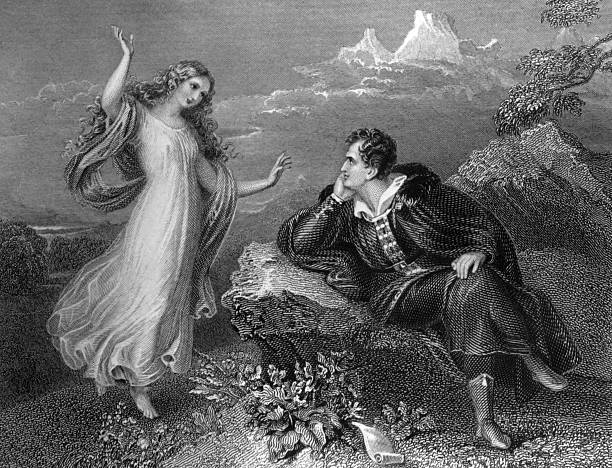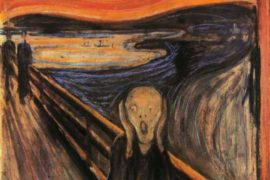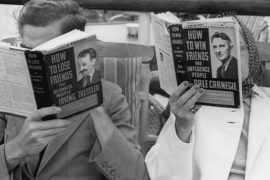George Gordon, Lord Byron (1788-1824) lived a short life, but he had it all. Highly-fashionable, flamboyant and known for being notorious, he falls in the category of the greatest English Romantic poets of all time. Before his premature death, Lord Byron wrote a plethora of poetry and plays to last for centuries and millenniums. He enchanted the Western civilization through his dynamism, vigour and undeterred efforts to fight for the rights of the oppressed people in society during those days.
George died in his mid-thirties while fighting in Greece, however, his works live on because of their sheer brilliance and unending variety. From lyrical masterpieces and love poetry to comic verses and extensive plays, Lord Byron gave the literary world a lot to absorb and adore.
Here are our top picks comprising of some of his best-known and most-beloved poems after reading Lord Byron – The Major Works (Oxford World’s Classics):
5) Darkness
Only Lord Byron could manage to create such a beautiful and gut-wrenching masterpiece out of the worst known tragedies to befall mankind. The eruption of the Indonesian volcano Mount Tambora in 1815 plunged Europe into darkness and record-low temperatures as ash clouds took over the sky the following year – 1816 – “the year without a summer.”
I had a dream, which was not all a dream.
The bright sun was extinguish’d, and the stars
Did wander darkling in the eternal space,
Rayless, and pathless, and the icy earth
Swung blind and blackening in the moonless air;
Morn came and went—and came, and brought no day,
And men forgot their passions in the dread
Of this their desolation; and all hearts
Were chill’d into a selfish prayer for light
4) The Destruction of Sennacherib
One of the most famous works of Lord Byron, this poem revolves around the biblical account of the Assyrian king Sennacherib. The mighty king tried to capture Jerusalem and initially succeeded, but eventually, he was destroyed by God’s Angel of Death in his sleep along with his Assyrian Army. Themes of death and the power of the lord take centre stage in this critically acclaimed poem that was highly revered in Victorian England.
The Assyrian came down like the wolf on the fold,
And his cohorts were gleaming in purple and gold;
And the sheen of their spears was like stars on the sea,
When the blue wave rolls nightly on deep Galilee.
3) Childe Harold’s Pilgrimage
A lot of people might recognise the below excerpt from Byron’s long narrative poem that was featured in “Into The Wild”, one of the most legendary movies in cinematic history. This autobiographical poem consists of four cantos. Cantos I and II were published in 1812, Canto III in 1816, and Canto IV in 1818.
Childe” is a title from mediæval times, designating a “young noble who is not yet knighted.” Just like Don Juan, Childe Harold’s Pilgrimage has autobiographical elements resonating with the story of Lord Byron’s origins as a young nobleman searching for adventure in exotic places before his arrival at the top of the poetry pyramid.
Childe Harold’s Pilgrimage marked the origin of the ‘Byronic hero’- a charming, dashing protagonist who becomes one of the most important archetype characters of the nineteenth century Western literature. The publication of the first two cantos was the first time when Lord Byron gained public fame.
There is a pleasure in the pathless woods,
There is society, where none intrudes,
By the deep Sea, and music in its roar:
I love not Man the less, but Nature more,
From these our interviews, in which I steal
From all I may be, or have been before,
To mingle with the Universe, and feel
What I can ne’er express, yet cannot all conceal.
2) She Walks In Beauty
Byron wrote this poem after meeting his cousin’s wife, Anne Wilmot, who was in mourning and wearing a black dress. He was captivated by her striking beauty and poise. Through “She Walks in Beauty”, he celebrates the external appearance as well as the inner beauty of a woman. The poem is also his way of conveying that what makes a woman so beautiful on the outside is in fact her inner beauty and goodness.
She walks in beauty, like the night
Of cloudless climes and starry skies;
And all that’s best of dark and bright
Meet in her aspect and her eyes;
Thus mellowed to that tender light
Which heaven to gaudy day denies.
1) Don Juan
Don Juan is a legendary Spanish libertine infamous for being devoid of any moral or sexual restraints whatsoever. He devoted his entire life to seducing women. His name is a common metaphor for a “womaniser”. Based on the legend of Don Juan, also known as Don Giovanni, Byron’s satirical poem ‘reverses his traditional portrayal and instead shows him as not a womaniser, but as someone easily seduced by women.’
This epic masterpiece, almost novelistic in length and range, consists of sixteen cantos with the seventeenth being unfinished at the time of Lord Byron’s death in 1824. He is credited with inventing the expression ‘Truth is stranger than fiction’ in this somewhat autobiographical poem which vaguely resembles Byron’s lively romantic escapades from his private life.
I want a hero: an uncommon want,
When every year and month sends forth a new one,
Till, after cloying the gazettes with cant,
The age discovers he is not the true one;
Of such as these I should not care to vaunt,
I’ll therefore take our ancient friend Don Juan—
We all have seen him, in the pantomime,
Sent to the devil somewhat ere his time.
Written by Sparsh Paul






